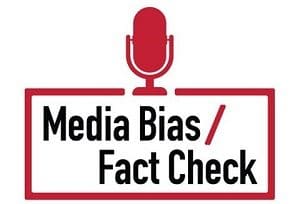LEAST BIASED
These sources have minimal bias and use very few loaded words (wording that attempts to influence an audience by using an appeal to emotion or stereotypes). The reporting is factual and usually sourced. These are the most credible media sources. See all Least Biased sources.
- Overall, we rate The Economist as Least Biased based on balanced reporting and High for factual reporting due to a clean fact-check record.
Detailed Report
Bias Rating: LEAST BIASED
Factual Reporting: HIGH
Country: United Kingdom
Press Freedom Rank: MOSTLY FREE
Media Type: Magazine
Traffic/Popularity: High Traffic
MBFC Credibility Rating: HIGH CREDIBILITY
History
Founded in 1843, The Economist is an English-language weekly news magazine edited in London, UK. The current editor is Zanny Minton Beddoes. According to their about page, The Economist “is neither right nor left but a blend of the two, drawing on the classical liberalism of the 19th century and coming from what we like to call the radical center.”
Read our profile on UK’s Government and media.
Funded by / Ownership
The Economist is owned by the Economist Group, which is a British multinational media company. They are primarily owned by the Cadbury, Rothschild, Schroder, Layton, and Agnelli families. Subscriptions, advertising, and sponsored content generate revenue for the Economist.
Analysis / Bias
In review, The Economist takes an editorial stance of classical and economic liberalism that supports free trade, globalization, open immigration, and social liberalism. There is minimal use of loaded language in headlines and articles such as this: America’s new attitude towards China is changing the countries’ relationship. In fact, most articles are well-written with a very low emotional bias. Economically, The Economist leans right, but they also support such initiatives as a carbon tax and environmental protectionism, which are not right-wing positions.
Editorially, The Economist endorses both Republicans and Democrats in the United States. For example, they endorsed Barack Obama and Hillary Clinton in 2016 while endorsing Ronald Reagan and George W. Bush in earlier elections. In the UK, they most recently endorsed the Liberal Democrats, which hold left-leaning libertarian positions. One criticism of The Economist is that most of their articles are penned anonymously, which they explain is to maintain a continuity of writing. They do, however, provide a media directory where you can view who is involved in writing and editing.
A 2014 Pew Research Survey found that 59% of the Economist’s audience is consistently or mostly liberal, 24% Mixed, and 18% consistently or mostly conservative. This indicates that a more liberal audience prefers the Economist.
Failed Fact Checks
- None in the Last 5 years
Overall, we rate The Economist as Least Biased based on balanced reporting and High for factual reporting due to a clean fact-check record. (7/10/2016) Updated (D. Van Zandt 12/08/2022)
Source: https://www.economist.com/
Last Updated on July 1, 2023 by Media Bias Fact Check
Do you appreciate our work? Please consider one of the following ways to sustain us.
or
Left vs. Right Bias: How we rate the bias of media sources


